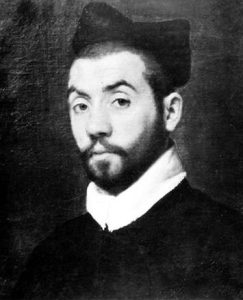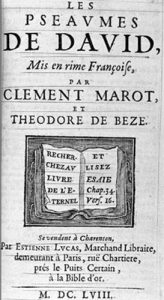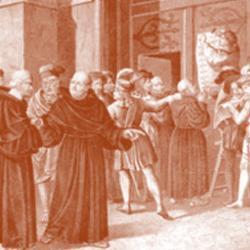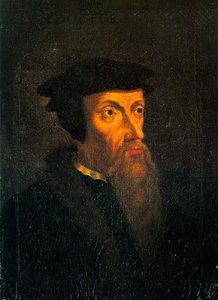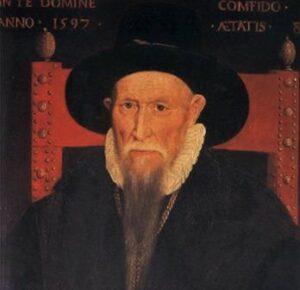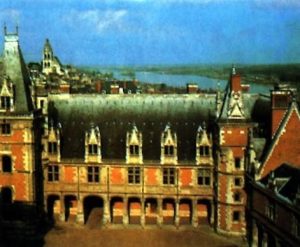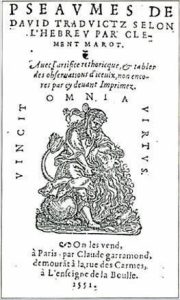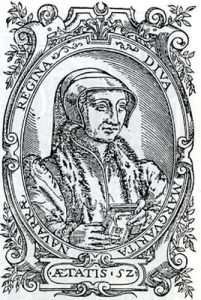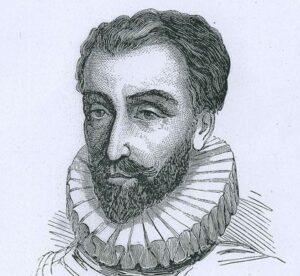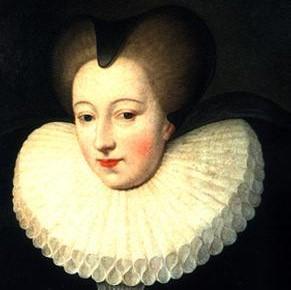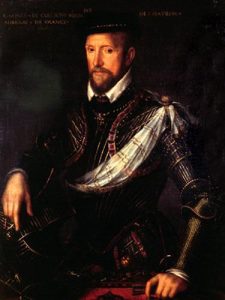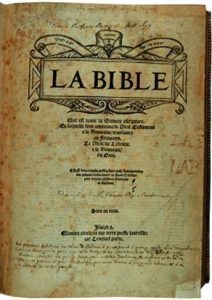A tormented life
Clément Marot was born in Cahors in 1496. He was taught poetry and rhetoric by his father who was himself a poet. He entered the service of Lord de Villeroy and later, that of Marguerite d’Angoulême, François I’s sister and future queen of Navarre. He replaced his father in the service of François I and frequented evangelical and humanistic circles.
His keen interest in the Reformation and his freedom of thought caused him considerable trouble. In 1529, he was charged with heresy and sent to prison. At the request of François I he was set free and became the official poet at the king’s court.
He was troubled again in 1532 and in 1534, after the “posters’ incident’”, he took refuge, first in Nierac, with Marguerite d’Angoulême and then in Ferrara, with Renée de France, Louis XII’s daughter. He abjured Protestantism in 1536 and was forgiven by the king. He went back to Paris in 1537 and once more became the official poet of the court.
He was accused of heresy once more when one of his works, ‘l’Enfer’, was reprinted in 1542. He took refuge with Calvin in Geneva. He died in Turin in1544.
The versification of the Psalms
Clement Marot probably began to versify (or paraphrase) the psalms around 1531, in order to replace les chansons mondaines et sales (the worldly and coarse songs) by the singing of the Psalms. He was doubtlessly influenced by Marguerite de Navarre and her leanings towards humanism and the Reformation. He put the psalms into verse and rhymes so that they could be easily memorised. He organised them into stanzas so that they could be sung.
In 1539, he offered François I the manuscript of the first thirty Psalms. They were set to music by using famous or secular tunes. They were tremendously successful, both at the court and all over France.
In 1542, he took refuge in Geneva with Calvin who encouraged him to resume the versification of the Psalms. When he died in 1544, he had versified 49 Psalms. Calvin gave Theodore de Bèze the responsibility of continuing Marot’s work and completing the versification of the 150 Psalms of the Bible.
Calvin asked several songsters from Geneva to compose or adapt tunes that were suitable for the singing of psalms in church. In 1562, an official collection of the 150 Psalms came out entitled ‘The Psalms of David’. This psalm book had a very large circulation and contributed to shape the Reformed identity. Some Psalms became passwords and even war songs as the French Protestant people went through difficult times.
The poet
All of Marot’s writings are versified. Most are secular poems, among which feature ‘the Opuscules’ (which include the poem ‘l’Enfer’), ‘the Elegies’, ‘the Epistles’ (addressed to the king and to other important figures), ‘the Epigrams’, ‘the Complaints of Adolescence’.
The Psalms are not his only religious work. He also versified the ‘Canticle of Moses’, the ‘Canticle of Simeon’, and some Orations, amongst which feature “The Commandments of God” (the Ten Commandments) and the “Oration to Our Lord Jesus Christ” (the Lord’s Prayer).
Clément Marot, received his inspiration from various sources ; his style was poetic, sophisticated, clear and picturesque; he can therefore be considered as a forerunner of the great literary movement of the French Renaissance, the Pléiade.
Clément Marot, beginning of Psalm IX :
« De tout mon coeur t’exalteray
Seigneur, et si raconteray
Toutes tes oeuvres nompareilles,
Qui sont dignes de grans merveilles. »
(I will praise you,
O Lord, with all my heart;
I will tell of all your wonders”
From the “New International Version Bible”)

